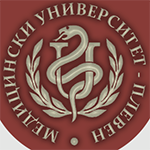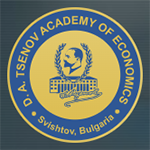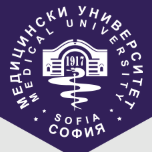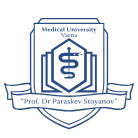Detailed introduction of Technical University - Varna:
Introduction and Overview
Varna Technical University is located in Varna, Bulgaria. It is one of the largest higher engineering colleges in Bulgaria. It can provide students with high-quality educational courses, undergraduate and master's degree courses, and provide the latest research results for professionals such as senior engineers.
History and establishment time
The school was founded in 1962 by the decree of the Council of Ministers of the People's Republic of Bulgaria and the Act of the National Assembly. It was originally named Varna Higher Electromechanical College, with three departments: Mechanical Engineering Department, Electrical Engineering Department and Shipbuilding Department. On July 21, 1995, it was officially upgraded to a university by a resolution passed by the National Assembly.
School Strength
Faculty: It has a team of experienced and highly professional teachers, many of whom have profound academic attainments and rich practical experience in the field of engineering technology, and can provide students with high-quality teaching and guidance.
Academic achievements: It has carried out extensive and in-depth research in the fields of engineering technology, natural sciences, mathematics and informatics, and has achieved a series of important scientific research results, making important contributions to the industrial and technological development of Bulgaria.
International cooperation: We have established cooperative relations with many universities in Greece, Belgium and other countries, and carried out projects such as student exchange, teacher visits, and joint scientific research, providing students with broad international exchange and learning opportunities.
Nature of the institution
A public non-profit higher education institution.
Educational philosophy
Committed to providing students with a development path from opportunity to reality, focusing on cultivating students' practical ability and innovative spirit, so that students can exert their potential in the field of engineering and technology and achieve their career goals.
Key laboratories and disciplines
Key disciplines: Mechanical engineering, shipbuilding, electronic engineering, computer science and technology, marine science and environment and other majors are in a leading position in Bulgaria and even Southeast Europe. For example, the shipbuilding major has strong strength in ship design, construction and maintenance, and has trained a large number of outstanding ship engineering and technical personnel; the electronic engineering major has remarkable teaching and research results in the fields of electronic technology, communication engineering, etc., and has provided a large number of professional talents for Bulgaria's electronic information industry.
Key laboratories: There are many advanced laboratories, such as mechanical manufacturing laboratories, electrical engineering laboratories, ship engineering laboratories, computer science laboratories, etc., which provide good conditions for students' practical teaching and scientific research activities.
Faculty
The school has 9 departments including the Department of Mechanical Engineering and Technology, the Department of Shipbuilding, the Department of Electronic Engineering, the Department of Computer Science, the Department of Marine Science and Environment, and the Department of Agriculture.
Ranking
In 2024, it ranks 18th in Bulgaria and 5983rd in the world.
Expenses
Undergraduate tuition fees range from about 2000 to 4000 euros per year, and master's tuition fees range from about 3000 to 5000 euros per year. The specific fees vary depending on the major. The school offers a variety of scholarships and grants to support outstanding students and students with financial difficulties.
Campus environment
Teaching facilities: The school has several teaching buildings and laboratory buildings with a total construction area of 67,542 square meters. All buildings are relatively new and were put into use after 1968. The school also has teaching facilities such as libraries and gymnasiums, providing students with good learning and living conditions.
Living facilities: The school's dormitories, canteens and other living facilities are compactly laid out, creating convenient living conditions for students. The school is surrounded by convenient transportation and complete living facilities, including supermarkets, restaurants, cafes and other living service facilities.
-

Medical University-Pleven
-

Trakia University
-

Burgas Prof. Assen Zlatarov University
-

Varna University of Management
-

D. A. Tsenov Academy of Economics
-

Technical University - Sofia
-

Medical University of Sofia
-

Plovdiv University
-

Sofia University
-

Medical University-Varna
-

Mesoamerican University
-

Istmo University
-

Mariano Galvez University of Guatemala
-

Regional University of Guatemala
-

Galileo University
-

Francisco Marroquín University
-

Rafael Landívar University
-

University of the Valley of Guatemala
-

University of San Carlos of Guatemala
-

Technological Institute of Tlaxcala Plateau
-

Golfo University
-

Technological University of South Sonora
-

Technological University of Huejotzingo
-

Tizimín Institute of Technology
-

Chilpancingo Institute of Technology

